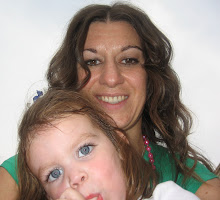Over the past few weeks the book du jour around here has been Astro the Steller Sea Lion by Jeanne Walker Harvey. In the beginning of the story, we meet Astro off the California coast. We travel along with him to The Marine Mammal Center because he was orphaned, and this is where marine mammals go when they are stranded or hurt.
When I write "we travel along with him," I almost mean it because the pictures in this book tell the story as much as the words. On the first page, the girls and I see Astro in the back of a pick-up truck riding down the road, the California coast a backdrop to the story that's beginning. Both Hadley and Harper touched the pick-up truck when they saw it at first, and I wondered if it's because it looks as though you can hop on and ride along with Astro as well.
The next page the girls become hooked, and you might think it's because they fall in love with Astro and want to find out more. While this is true, it happens later in the story. On this page, the girls hoot and holler because there is a girl wearing blue rainboots with orange fish on them.
Well of course this book was made for us! The illustrator used our favorite colors! Let's read on!
And we do. We read about Astro drinking salmon smoothies, and we learn a new word: surf. However, the reason I keep turning the pages is because I want to know if the scientists at The Marine Mammal Center will successfully get Astro to return to the wild. They make several attempts to put Astro back into the ocean, or on the beach, but he will have none of it. My favorite part in the story is the part where Astro, after a lot of encouragement, jumps into the ocean with his other sea lion buddies. Everybody on the boat thinks this is fantastic and that Astro is on his way into the wild.
"But...." Ms Harvey writes, "...10 days later, Astro swam under the Golden Gate Bridge into the San Francisco Bay. He climbed onto a sandy beach in someone's backyard - not far from The Marine Mammal Center." I love that he found his way back, and seemed happy about it despite the concern of the scientists that he'd never thrive in the wild.
Hadley loves looking at the picture and hearing the part of the story where Astro is put into the wild again, and not only finds his way back, but sees a group of children and their parents on a field, and goes over to join them. She thinks this is so funny, and I think hopes this sort of thing will happen to her one day when she's out at recess.
There are a few ways I can tell whether a book resonates with the H's. Do they ask to have it read to them frequently? Do they re-read it again to their stuffed animals and baby dolls? And last, do they want to take it along with them when we go to Starbucks?
Astro passed all three.
The girls love books about animals, and thanks to Diego, they love to hear stories about animals being rescued or going on an adventure. The importance of taking care of Astro and putting him in an environment that is appropriate for him might've gone over their heads as we read the story over and over. However, the great thing about this story is that it will resonante with children on several different levels. Harper, who's 2, loved looking at the pictures of Astro when he was playing with the rubber duck and the balls. Hadley, who's 4, loved listening to the story as she colored and would put her hand on my hand when she wanted to stop and study a picture or ask a question. As they get older, they'll understand the work and care that went into keeping Astro safe.
As for me, I really liked Astro, and I rarely connect with animals. I'm more of a "don't bother me I won't bother you" kind of gal when it comes to animals. But I loved Astro. His swimming under the Golden Gate Bridge, and running onto a field of kids to say hello made me smile. I loved that he showed what he wanted and where he felt most safe.
I hope we can visit Astro sometime in his new home in Connecticut.
Sunday Morning Meds from Psalm 32
10 hours ago

















